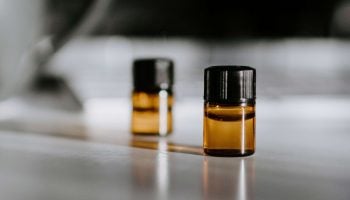One of the biggest concerns around psychedelics is the long-term effects on the brain.
Myths around psychedelic use are rampant.
While LSD has caused long-term insanity in certain individuals, almost all of these cases occurred in people who either had a previous history of mental illness (especially schizophrenia) or who had a latent issue.
LSD does not ‘create’ insanity or mental health issues. Instead, it can, in rare situations, act as an activator of certain mental health issues.
So, if we get past the initial scare of LSD, what are the actual effects of LSD on the brain?
In this article, I will break it down into three parts – the general effects of LSD (basically, the layman’s version of what LSD does to the brain), the science-y breakdown of LSD’s effects, and the possible long-term effects of LSD.
WHAT IS LSD?
LSD (aka “acid”) is short for “lysergic acid diethylamide” is a powerful psychedelic drug derived from a chemical found in rye fungus. This discovery was made in 1938 when Swiss Scientist Albert Hofmann synthesized LSD in his laboratory in Basel, Switzerland.
To learn more, see The Ulimate Guide to LSD.
WHAT DOES LSD DO?
Short-Term Effects of LSD
A moderate dose of 75-100µg taken orally will have strong, noticeable effects that often induce deep introspection and feelings of euphoria. These effects can last between 8 and 12 hours depending on the dosage.
Increased sensory perception is a hallmark effect of LSD. This can take the form of an enhanced appreciation for music (some say that after taking LSD, it’s like they’re hearing music for the first time), or a sharpened sense of smell and taste. Touch also becomes heightened, and many people experience a strong desire to touch soft items as well as other people. Another unique property of LSD as well as other psychedelics is synesthesia, a condition that involves senses merging—you might “taste” music or “hear” colors.
Vivid hallucinations are also a common and profound aspect of an LSD experience. Consisting of often colorful visions, hallucinations are often the highlight of people’s experiences. Auditory hallucinations are also not uncommon. Here’s more on what you can expect from an LSD trip.
Long-term Effects of LSD
Although scientific research has been limited on LSD due to its prohibition as a Schedule 1 drug, much of the research carried out in the ’50s and ’60s show no long-term damage to the brain as a result of LSD consumption.
‘Long-term damage’ is a vague definition, however, and doesn’t address the biggest concern users have before taking LSD:
“Will it cause me to go crazy?”
The answer? Extremely, extremely unlikely.
As mentioned above, LSD can only initiate latent mental health issues, specifically schizophrenia, in individuals.
Schizophrenia, however, is rare, only affecting 1 in 100 people.
This means LSD is safe for 99% of individuals to take, as long as certain precautions are taken.
It is critically important to pay attention to set and setting when taking any psychedelic, as this will often dictate the actual journey. For more on set and setting, and the other 4’s (and how you can create an excellent environment for your first journey), check out this article on the 6 S’s.
Let’s get to the next big concern: Does LSD, or any other psychedelic, cause long-term addiction?
No. And this is what sets psychedelics apart from almost every other scheduled drug available today (including the legal ones like Adderall, Valium, Oxycontin)
LSD, and other psychedelics cause no long-term physical dependency or addiction. Although science has yet to establish the exact reasons why this is the case, it is assumed this occurs because of the manner in which psychedelics act on serotonin and dopamine receptors.
Dopamine is addictive because when a high concentration of dopamine is released, it acts on the ‘reward centers’ of the brain.
And as the ‘reward centers’ get hit with more and more dopamine, it feels really good. And this keeps addicts coming back for more and more (whether the drug is alcohol, heroin, cocaine, or a prescription drug).
Psychedelics do NOT increase the amount of dopamine available. Instead, they only act on certain dopamine receptors.
What about serotonin?
Although moderate LSD use temporarily reduces the relative levels of serotonin available, it does not have a long-term effect on serotonin levels. If abstinence is practiced, serotonin levels will return to normal within 1-2 weeks.
One long-term effect users of psychedelics should be aware of is hallucinogen persisting perception disorder (HPPD). Although this condition is extremely rare, it does happen from time to time. HPPD is characterized by a continual presence of disturbances, most often visual.
HOW DOES LSD AFFECT THE BRAIN?
When ingested, LSD acts on the brain’s 5-HT (serotonin) receptors, effectively increasing the chemical in the brain. Of the 15 serotonin receptors in the brain, LSD mostly prefers the 2A subtype (5-HT2A), which is involved in cognitive processes in the prefrontal cortex, the area of the brain responsible for complex cognitive behavior, personality expression, decision-making, and social behavior. It also plays a key role in our ability to process information from other brain systems and make goal-directed decisions.
Recently, researchers at the Beckley Foundation began research on the specific effects of LSD on the brain. The research is led by a group of neuroscientists at Imperial College London.
These same researchers previously conducted studies with psilocybin, the primary ingredient in magic mushrooms.
They found psilocybin suppresses activity in certain “hub” areas of the brain that normally play a constraining role.
In suppressing activity in certain areas, psilocybin helps brain regions that are normally distinct begin to communicate with one another, which could be why we see an increase in creativity with the use of this substance.
Beckley’s latest study involved giving 20 volunteers a small dose of LSD and then using MRI and MEG imaging to show how LSD affects brain processes.
What was the primary hypothesis?
The researchers believe LSD may behave in a similar way to psilocybin, reducing blood flow to the control centers of the brain and thus dampening their activity, which ultimately enhances brain connectivity.
In a recent post on the subreddit ‘Explain Like I’m Five’ a Reddit user with the username ‘Gaywallet’, who works as a neurobiologist, gave the following explanation for LSD’s effects on the brain:
“LSD happens to be even better at activating serotonin receptors than serotonin itself, so it essentially increases the normal levels of signaling by serotonin (it does this through a variety of mechanisms, not just limited to better binding – it actually releases extra serotonin, changes the lock to accept keys more readily, etc.).
He then goes on to explain, in simple terms, what the researchers at Beckley Foundation are attempting to prove through research:
“Through a relatively unknown mechanism, LSD increases ‘cross-talk’ between areas of the brain. That is to say, it helps stimulate areas of the brain that don’t normally talk to each other, to start talking to each other. Over the long term, it can even help create connections that previously didn’t exist – much like putting up extra telephone or internet lines. This increased cross-talk while under the influence of LSD (combined with the increased sensory input) often results in something known as synesthesia, or a mixing of the senses.”
(If you want to see the full response, go here)
THE SCIENCE OF LSD
Let’s get deeper into the other effects of psychedelics, specifically the cognitive processes affected by psychedelics.
The relationship between classic hallucinogens (like LSD and Magic Mushrooms) and the neurotransmitter serotonin has been established in several studies.
When ingested into the human body, LSD acts as 5-HT (Serotonin) autoreceptor inhibitor, thus it is a 5-HT agonist (which is a fancy-schmancy way of saying that LSD, in some way, activates serotonin receptors.)
Furthermore, LSD increases the level of active 5-HT molecules by disaffecting their autoreceptors (a safeguard type feature in the brain which reduces levels of certain neurotransmitters and the like).
There are 15 different serotonin receptors, but LSD specifically activates the 2A subtype (5-HT2A). The HT2A receptor is involved in cognitive processes in the prefrontal cortex.
And this is an important point, for this is where many of LSD’s benefits come from its involvement in the prefrontal cortex.
The prefrontal cortex is thought to be active in planning complex cognitive behavior, personality expression, decision-making, and moderating social behavior.
It also plays a key role in a human’s ability to process information from all other brain systems, and make goal-directed decisions as a result.
If users understand the role of the prefrontal cortex in human thought and compare the urges one has after an excellent psychedelic journey, it makes sense why psychedelics can be such powerful tools for transformative change.
One of the benefits I always experience from a psychedelic journey is an urge to reflect on life and figure out how I can improve it through practical, goal-oriented behavior.
“LSD activates receptors in the prefrontal cortex; thought to be involved in planning complex cognitive behavior, personality expression, decision-making, and moderating social behavior.”
If you want to step into the world of microdosing LSD or any other psychedelic substance, try our Microdosing Course. Using the latest research from cutting-edge scientists and doctors, we’ll help you develop a customized, step-by-step process to change habits, enhance creativity, and optimize performance.







What about 300 LSD trips in high-school – any long term effects?
Lmaoooo. How is that possible!?!?
Not for me!
I used to trip at least one a week from 1987 through about 1990. I certainly haven’t dealt with any long term NEGATIVE side effects. I don’t consider marked intolerance for political and religious control to be a negative. I possessed those traits before I ever tripped, and it might have possibly intensified those aspects of my personality. I don’t see it as a bad thing, but I can see how that would scare religious and political leaders.
Don’t do drugs, kids. Drugs are bad for you, mmkay?
LSD is leeful
Now I understand. I am taking a psychology class and we are learning about the brain and neurotransmitters. This made me think about the effects LSD gives to the brain. Serotonin affects hunger, sleep, arousal and mood. Which explains why when someone is on LSD, they loose appetite, sleep, increase arousal and a a happier mood.
Do you have any reference or scientific article that prove LSD doesn’t increase the dopaine ?
no such thing as personality or socx or not, express, can express any nmw
Can you provide the source stating that LSD decreases serotonin in the brain for 1-2 weeks after?… I have never heard this before, and a quick search on a few ACTUAL studies say that it does not affect the net amount of serotonin in the brain at all (makes plenty of sense since it simply binds to the receptors).
Please show incontrovertible evidence that LSD “causes” or exacerbates latent or existing psychoses. It is a popular myth, yet there is no reliable evidence that it is true. I have personally rooted out several hundred case studies that suggested this, yet not a single one of them did not also involve some other agent; another drug, or drugs, a toxic environment, or (God Forbid) the presence of antipsychotics or antidepressants.
I would also challenge the ability of researchers to measure, quantify, or determine the causality of this claim. How could you possibly know if a person had a latent psychosis? Furthermore, how could you accurately show that it was the LSD that caused it?
These myths have been favorite parts of the government’s constant grinding out of anti-drug propaganda to support their heinous, draconian War on Drugs, a program that was created PURELY to grant Nixon the power to harm his most hated groups – people of color and hippies (antiwar protestors.)
L.S.D. is made from Lysergic Acid amides contained in the Ergot Fungus, sometimes found growing on Rye and other grains during cool damp weather, not the Rye itself. This purple hard horn shaped growth was probably the catalyst for the Salem Witchcraft scare.
It’s spurious and potentially harmful to claim that LSD can “trigger” or otherwise aggravate a mental illness. We’re talking about psychoses here, usually schizophrenia. It’s a hereditary disease that is present from birth. It typically begins to show symptoms in the teens to twenties, and occurs independently of any drugs or physical experiences. It is not possible for ANYTHING to “trigger it,” plus it is impossible to determine any such thing. If someone is psychotic, they are psychotic and no drug is going to make it magically appear “earlier” than it was going to. What harm is it, even if that were the case?
There are, however, numerous cases of LSD and other TRUE psychedelics being very helpful or even curative for mental illnesses and/or psychoses.
I don’t appreciate your spreading this disinformation (which began as CIA/DEA propaganda.) It could deprive people of a potentially very healing experience.
Microdosing is where it is at. I have used it and had my son try it, he was amazed how much 1-3 microdose drops affected him positively. Suddenly you view a person or problem from a whole new angle organically, very good for a person.
I actually use it for autoimmune disease and the incipient anemia it causes that doctor’s are useless for. It increased serotonin, and serotonin has a big effect on iron uptake. Doesn’t take a genius, just someone who doesn’t buy into pharma